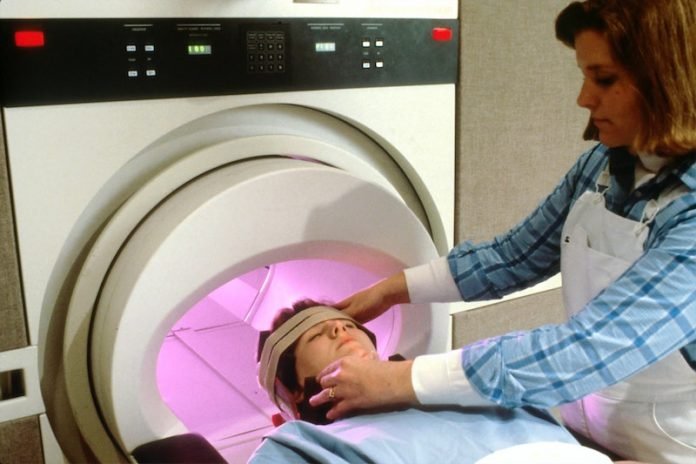
After recovering from COVID-19, some patients are left with chronic, debilitating pain, numbness, or weakness in their hands, feet, arms, and legs due to unexplained nerve damage.
In a new study, researchers found how advanced imaging technology can pinpoint what may have caused patients’ nerve damage and help determine the best course of treatment.
This is the first known paper to summarize how these advanced imaging techniques can help physicians identify and treat nerve damage in COVID-19 patients.
The research was conducted by a team at Northwestern Medicine.
Previous research found COVID-19 patients can experience nerve damage after being flipped onto their stomachs in the ICU as a life-saving measure to help them breathe.
This new study demonstrates how advanced imaging aids these patients as well as two additional patient groups with COVID-19-related nerve damage:
Secondary to an inflammatory immune response that attacked the nerves or
From a hematoma (when blood collects outside of the blood vessels).
Similar to how the body’s immune response attacks the lungs in severe COVID cases, some patients have an immune response that affects their nerves.
Another group of patients developed hematomas as a complication from the blood thinners they were treated with when they had COVID.
In the study, the team used an imaging tech that includes an ultra-high-resolution ultrasound and MR neurography (MRI of peripheral nerves, which impact the arms and legs).
They can help localize where a patient’s problem is, show the severity of nerve damage, how many nerves are affected, and if the nerve damage also has impacted the muscles.
The advanced ultrasound technology is new, portable, less expensive, and can sometimes be even better at detecting nerve damage than MRI.
Ultrasound also can be performed on patients who are unable to tolerate MR imaging.
If imaging technology discovers nerve damage caused by stretch injury because of prone positioning, that patient may be referred to a physician who specializes in rehabilitation or peripheral nerve surgery.
If imaging finds nerve damage due to an inflammatory response, the patient may be better served by seeing a neurologist.
If imaging reveals nerve damage from a hematoma, blood thinner medications would have to be adjusted immediately and the patient may even have to see a surgeon.
The team says for COVID-19 patients and survivors with neuromuscular complications or “long-hauler” symptoms, imaging can help reveal the problem and guide further treatment.
All patients in the study had tested positive for COVID-19.
One author of the study is Dr. Swati Deshmukh, an assistant professor of radiology.
The study is published in Radiology.
Copyright © 2020 Knowridge Science Report. All rights reserved.



